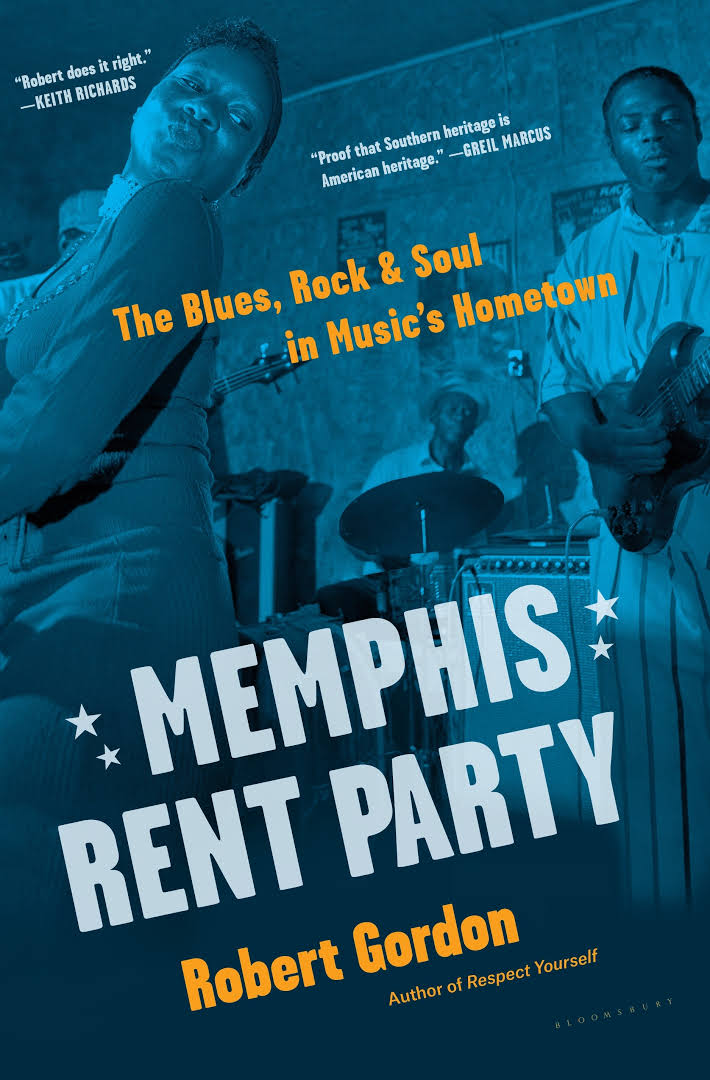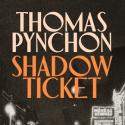“There’s a rhythm in the air around Memphis, there always has been,” Carl Perkins once said. "I don't know what it is, but it's magic." The city on the Mississippi lives up to its musical heritage with performance venues aplenty, and a host of museums dealing with its illustrious musical past: there's Elvis Presley's Graceland mansion with all its garish gold lamé costumes, cars and even private jets; Sun Studios is now a museum; and there is a Stax Museum, a Blues Museum and the much-praised Memphis Rock 'n' Soul Museum.
Memphis-born music journalist, filmmaker and author Robert Gordon has made his hometown, its music and its emergence from segregation into the permanent backdrop for all of his books about music to date – this is the sixth. His first book, which took on the interlocking themes of Memphis and music, It Came from Memphis, was published in 1995, and he returns to that large patch here. In the intervening years between these two Memphis books, he has written a pair of books about Elvis, a biography of Muddy Waters and the story of the Stax record label.
 Whereas the most recent books – particularly the excellent history of Stax – have had a single narrative thread, this new book eschews that method: it returns to the broader Memphis context in a volume which is partly a personal memoir, partly an anthology of previously published articles. Elvis Costello has called the book “an emotional map of musical Memphis”.
Whereas the most recent books – particularly the excellent history of Stax – have had a single narrative thread, this new book eschews that method: it returns to the broader Memphis context in a volume which is partly a personal memoir, partly an anthology of previously published articles. Elvis Costello has called the book “an emotional map of musical Memphis”.
The bulk comprises 20 chapters, each based around a single individual. Gordon presents a kaleidoscope of impressions, the main element of each chapter a previously written piece of journalism. He has deliberately avoided some of the heaviest hitters: there is no chapter about Elvis, or Johnny Cash, or Isaac Hayes. And the book hardly touches on the jazz musicians from Memphis. No Charles Lloyd, or George Coleman, or Harold Mabern, but there is a delightful chapter touching on the hugely influential pianist Phineas Newborn Jr – setting him in the context of his family.
The inclusion of previous journalism means that the angles on each character, the dates the pieces were originally written, the particular focus of the pieces are all something of a random walk. So, for example, the chapter on Jerry Lee Lewis is a long-form piece commissioned by Playboy in 2005, with perceptive insights into the man and his life story, cutting forwards to recording sessions at which Gordon was, metaphorically, a fly on the wall, culminating in a collaboration with Kid Rock, where the two who had scarcely known each other beforehand hit their stride with the Rolling Stones’ "Honky Tonk Women" – complete with its well-known Memphis references.
The article on blues legend Robert Johnson takes another tack. It “follows the money” – the wealth from the bluesman's music that managed to elude Johnson’s heirs for several decades – and investigates shadowy or enigmatic figures such as Stephen C LaVere, who played fast and loose with the copyrights, and the dedicated Robert Johnson sleuth Robert Burton “Mack” McCormick.
And then there are chapters about lesser-known figures, too. There is a chapter on the wild man of Memphis music, "career criminal" Jerry McGill, ending with a neat epitaph from Gordon: “while he was not someone I may have wanted in my house, by the end, he was someone I was glad was in my life.”
The index - I am guessing it has been constructed by the author himself - sets the reader off on all kinds of wonderful rabbit chases
And there is a curious chapter on fisherman, boat-builder and one-time athlete Ernest Willis, the justification for which eluded me until an "aha" moment when I found a mention in the index which gave a probable reason for its inclusion: “Mississippi River [pp] 36-43.”
The index – I am guessing it has been constructed by the author himself – sets the reader off on all kinds of wonderful rabbit chases: how could one not want to follow this one up? “Presley, Elvis Aaron – Pentecostal influence on [p] 171” which suggests an interesting source for the King of Rock n' Roll’s hip gyrations.
This book has worked far better for me as a lucky dip rather than a sequential read. Gordon is constantly insightful, and the vast apparatus of suggestions for further reading and listening at the back is a veritable treasure-trove. He has the skill of a great journalist, which is to be a butterfly and pick his aperçus and his insights from far and wide.
Gordon has absorbed the credo of Sun Records founder Sam Phillips: "Give me something different." So when it comes to summing up the essence of what the city is about, he reaches the conclusion that Memphis is "not about perfection, but about the differences, the flaws". Which also happens to sum up neatly the unpredictable delights of this fascinating book.
- Memphis Rent Party - The Blues, Rock and Soul in Music's Hometown by Robert Gordon (Bloomsbury, £18.99)
- Read more book reviews on theartsdesk















Add comment